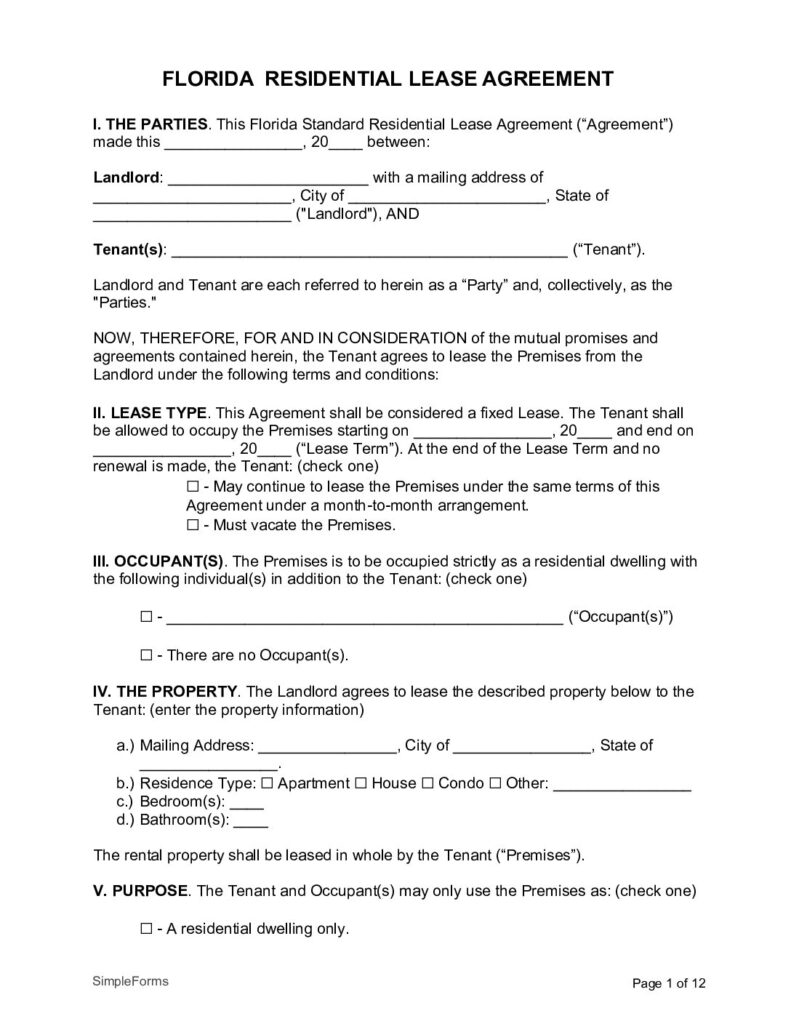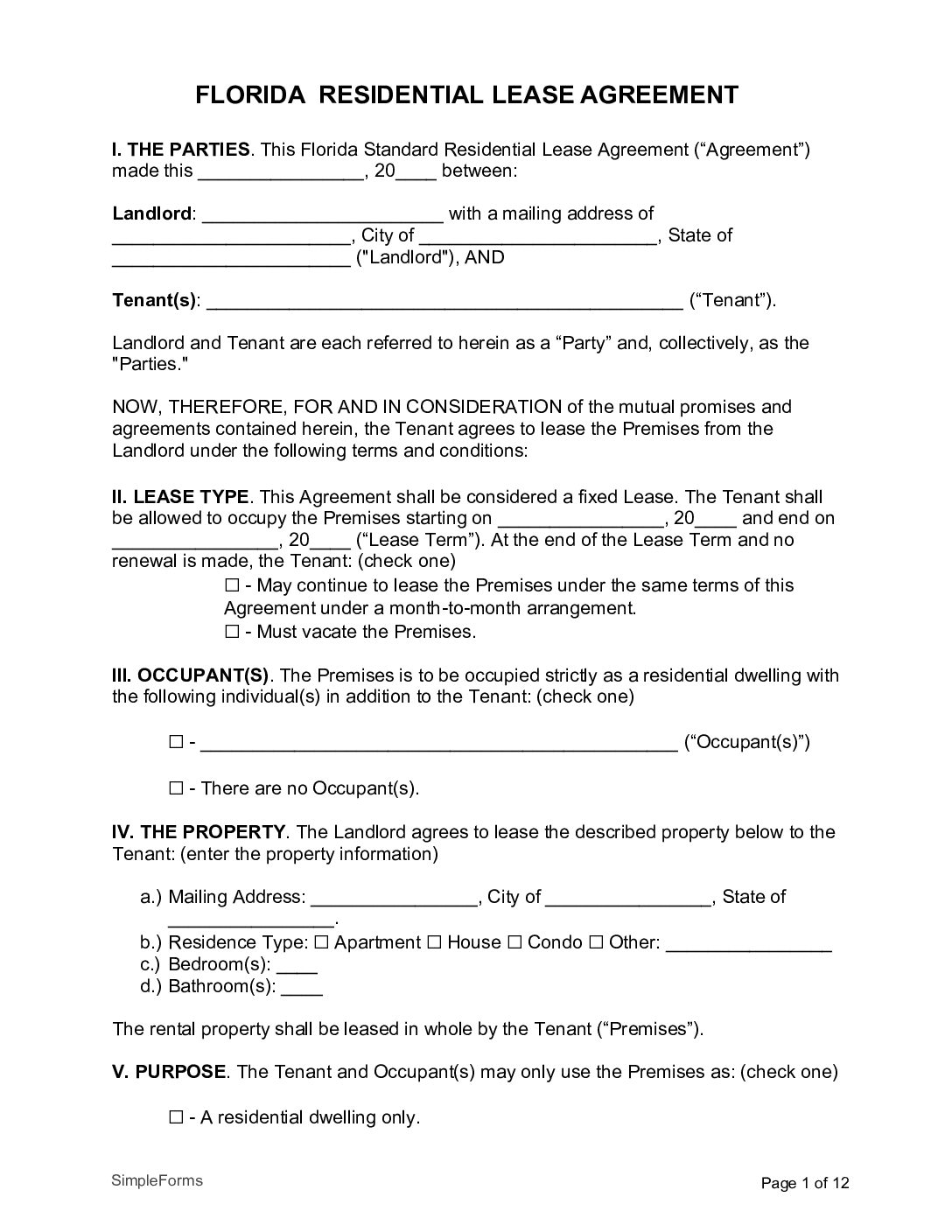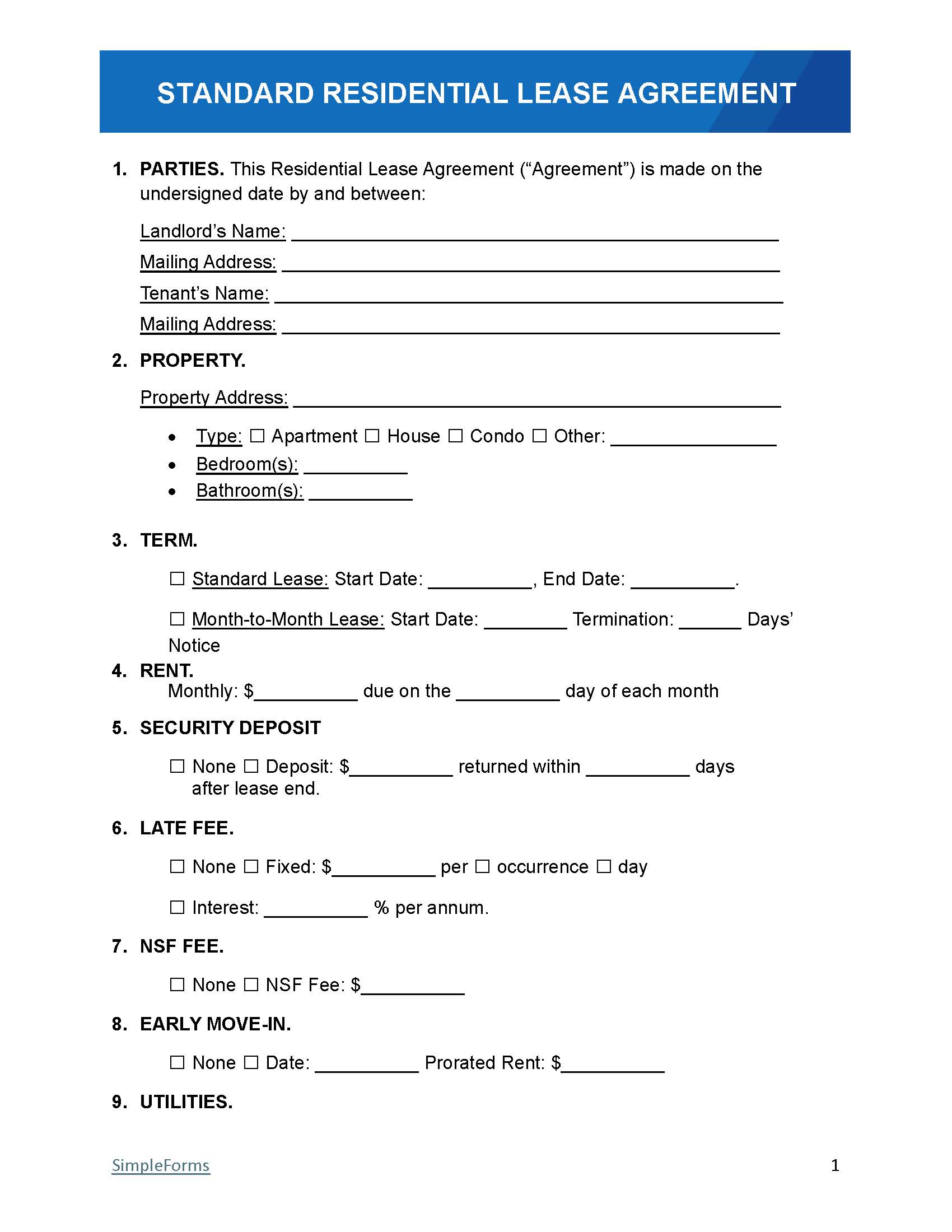Florida Landlord-Tenant Laws
Florida’s residential landlord-tenant laws are covered in Title VI, Chapter 83, Part II of the Florida Statutes. The Florida Department of Agriculture and Consumer Services (FDACS) provides a Landlord/Tenant Law Brochure summarizing key information for renting or leasing a property.
Required Disclosures
Florida law requires landlords to provide security deposit details, disclose any lead-based paint in older homes, and inform tenants about radon gas. Landlords must also give tenants reasonable notice before entering the property for non-emergency reasons.
- Fireproofing and fire protection systems – Landlords must give tenants information about fire protection in buildings over 3-stories. [1]
- Landlord/Owner Contact Information – The landlord’s full mailing address must be provided for tenant notices. [2]
- Lead-Based Paint Disclosure Form – Required for rental units built before 1978. [3]
- Radon Disclosure Form – Tenants must be informed about radon hazardous gas.
- Security Deposit Disclosure – Explains how the tenant’s deposit will be handled during and after the lease.
Security Deposit Requirements
- Maximum Amount ($) – Florida does not mandate the maximum amount that Landlords can request from Tenants.
- Returning – 15 days from the lease end date written in the lease agreement.
Late Fees and Penalties
Forms for Common Landlord-Tenant Disputes (residential only)
Landlord-Tenant forms for common issues that arise between the parties resources (supremecourt.flcourts.gov).
Landlord Resources
Residential Tenancies – Title 6, Ch. 83, Part 2
Handbook (Guide) – Florida’s Landlord/Tenant Law
Sample Florida Residential Lease Template
Download: Word Template (Spanish)


